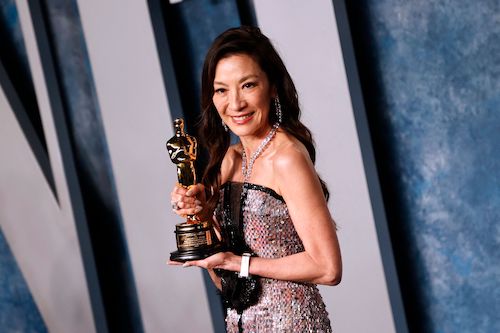
Everything Everywhere All At Once made history at the 95th Academy Awards. The celebrated multiverse fantasy has capitalised on its run of positive rewards and wins on the independent circuit, grabbing seven Oscars in total including the coveted top prizes of Best Picture and Best Director.
The latter category went to the filmmaking duo of Daniel Kwan and Daniel Scheinert, known collectively as Daniels. The independently-minded artists fought off stiff competition on both the Best Picture and Best Director fronts including the likes of The Banshees of Inisherin and its helmer Martin McDonagh, which was widely considered a frontrunner but ultimately came away with nothing.
The night evidently belonged to Everything Everywhere and its stars, Michelle Yeoh, Ke-Huy Quan and Jamie Lee Curtis. Yeoh won Best Actress, becoming the first Malaysian performer to ever win and only the second person of colour to win in the history of the ceremony (the first was Halle Berry for Monster's Ball back in 2001). Yeoh fended off the likes of TÁR performer Cate Blanchett who already has two Oscars to her name and was being touted to win her third.
Quan cemented his comeback story (always beloved by the Oscars) by grabbing Best Supporting Actor. Largely absent from the screen since his 1980s Indiana Jones and The Goonies heyday, Quan's performance as Yeoh's on-screen multiversal badass husband was a clear favourite to win, both in terms of sentiment and merit.
Talking of sentiment, it was perhaps nostalgia that propelled Curtis to a somewhat controversial win over the competition. This is Curtis' first win in an illustrious, 45-year career, although opinions will rage as to whether fellow Everything Everywhere nominee Stephanie Hsu should have claimed the prize. After all, her character Joy is the emotional lynchpin of the entire movie.
Curtis also won over fan favourite Angela Bassett who was poised to become the first actor to win an Oscar for a Marvel movie (Black Panther: Wakanda Forever). That said, Wakanda Forever's costume designer Ruth E. Carter made history by becoming the first woman of colour to win in that particular category.
Elsewhere, the song Naatu Naatu from the hit Telugu-language film RRR made history by becoming the first Indian film song to win an Oscar.
The sentimental comeback arc clearly helped propel Brendan Fraser toward a win for The Whale. He triumphed in the Best Actor category over apparent front runners Colin Farrell for The Banshees of Inisherin and Austin Butler for Elvis. Fraser's engaging presence both on-screen and off it during The Whale's publicity junket is redemption for years spent out in the cold, never a bad thing for winning over the Oscar voters.
As mentioned, The Banshees of Inisherin's talented ensemble came away empty-handed. This also included Brendan Gleeson and Barry Keoghan in the Supporting Actor categories, and Kerry Condon in the Supporting Actress field. Martin McDonagh lost out in the Original Screenplay category to pack leader Everything Everywhere, which also claimed Best Editing.
With seven Oscars to its name, Everything Everywhere is the most-awarded Best Picture winner since Danny Boyle's triumphant Slumdog Millionaire, which was released back in 2009. The record for the most Oscars is currently a three-way tie between The Lord of the Rings: The Return of the King (2003), Titanic (1997) and Ben-Hur (1959).
Sarah Polley's lauded Women Talking, adapted from Miriam Toews' novel, landed the Oscar for Best Adapted Screenplay, its sole win. Polley's movie, which dramatises the fallout from horrific crimes committed in a female Mennonite community, has been praised for its literary intelligence and acumen, and its Oscar win is surely validation of those qualities.
To round things off, the acclaimed German-language movie All Quiet on the Western Front, adapted from the landmark novel of the same name, scooped four awards including the inevitable Best Film Not In The English Language. And, in a typically divisive Oscars move, composer Volker Bertellman claimed Best Original Score over Justin Hurwitz for Babylon and John Williams for The Fabelmans.
What are your reactions to this year's Oscars? Did your favourite movies win? Tweet us your responses @Cineworld.

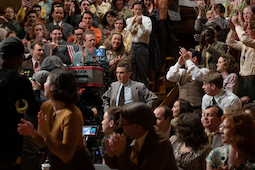
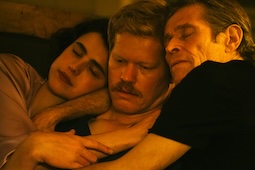

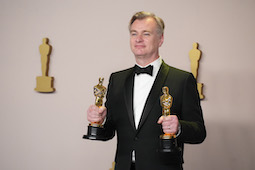
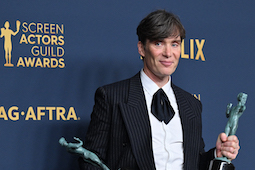

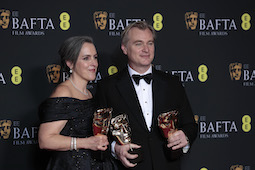


.jpg)


.jpg)
.png)






